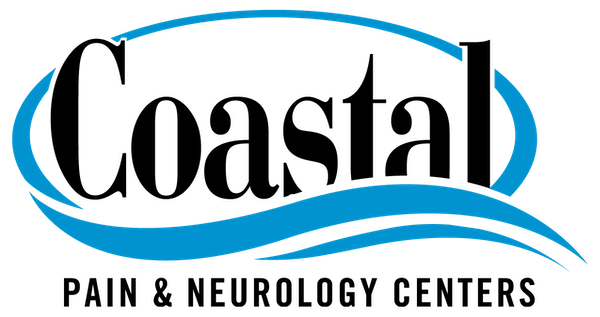Medical Cannabis Treatment
Coastal Pain & Neurology Centers
offers comprehensive medical cannabis treatment to everyone. From pediatric to geriatric patients, we successfully treat conditions ranging from chronic pain to cancer with a compassionate, noninvasive approach that has minimal to no side-effects.
If our experts determine you will benefit from medical cannabis, we will work with you to develop an individualized treatment plan based on your qualifying conditions, while taking several factors into account: product selection, dosage, and potential drug interactions. We will also guide you through the process of obtaining a registry ID card. Then, we will closely monitor your treatment and make any necessary adjustments to your regimen.
Our team’s extensive knowledge of medical cannabis––and commitment to holistic, integrative treatment––will guarantee you the best possible care.
QUALIFYING CONDITIONS
Cancer
In many cases, when cancer is caught and treated early, you have a high chance of surviving and leading a healthy and fulfilling life. However, conventional treatments for cancer like chemotherapy and radiation also take a toll on your physical and mental health. The side effects of treatment are sometimes more disruptive than your disease. Medical cannabis can soothe the symptoms of cancer as well as the side-effects of treatments. When it interacts with your endocannabinoid receptors, it can reduce your pain and stimulate your appetite, which not only helps you feel better but enables you to eat and maintain your strength to continue your fight.
Epilepsy
Strains of cannabis with high levels of cannabidiol are anecdotally proving to be an effective epilepsy treatment for adults and children. Studies also show that medical cannabis reduces seizures that affect motor skills and muscular control. Some patients even experienced the elimination of seizures during a clinical trial. Medical cannabis has also helped patients who had not found successful treatment with conventional approaches. It is also proving to be an effective treatment for children with autism disorders who experience seizures.
Glaucoma
Your eyes contain endocannabinoid receptors that respond to the more than 400 natural chemicals in the cannabis plant. Medical cannabis lowers IOP by about 25% for 3-4 hours in up to 65% of patients.
HIV/AIDS
Patients with HIV often struggle with chronic nausea and vomiting that interfere with their ability to take in enough nutrients to stay healthy and strong. But medical cannabis can relieve the side-effects of HIV and AIDS medications.
Post-Traumatic Stress Disorder (PTSD)
Studies show that people with PTSD have an endocannabinoid deficiency. Medical cannabis provides your endocannabinoid system with sufficient stimulation to reduce your PTSD symptoms. Medical cannabis also stimulates a different part of your brain than conventional antidepressants and provides an alternative approach to mental health treatment.
Amyotrophic Lateral Sclerosis (ALS)
Medical cannabis interacts with your ECS to alleviate many of the symptoms of ALS. They enhance the effects of the cannabinoids that your body naturally produces to alleviate symptoms such as:
- Anxiety and depression
- Lack of appetite
- Pain
- Muscle spasticity
Crohn’s Disease
The many chemical compounds contained in medical cannabis, including cannabinoids, reduce inflammation associated with Crohn’s disease. With medical cannabis, you may be able to reduce or withdraw from other medications while still experiencing symptom relief. Benefits of medical cannabis for Crohn’s disease include:
- Increased appetite
- Less pain
- Less diarrhea
- Less nausea
- Better weight gain
Parkinson’s Disease
The two most common cannabinoids in marijuana—cannabidiol (CBD) and tetrahydrocannabinol (THC)—help control a variety of Parkinson’s symptoms. If you’re in the early stages of the disease, medical cannabis may even be sufficient to help you manage your symptoms and maintain your quality of life. The cannabinoids also have anti-inflammatory actions that may protect your brain cells. If you are in the more advanced stages of the disease, you can add medical cannabis to your regimen to complement your treatment.
Multiple Sclerosis (MS)
The cannabinoids in medical cannabis interact with your own endocannabinoid receptors in your brain, spinal cord, and nerves. Medical cannabis also contains antioxidants and acts as an anti-inflammatory agent. Some of the benefits of medical cannabis for MS include:
- Reduced pain
- Less spasticity
- More relaxed muscles
- Reduced bladder urgency
- Better sleep
- Less anxiety
Patients may also qualify for medical cannabis if they suffer from 1) medical conditions of the same kind or class as or comparable to the others listed above, 2) a terminal condition diagnosed by a physician other than the qualified physician issuing the physician certification, or a 3) chronic nonmalignant pain caused by a qualifying medical condition or that originates from a qualifying medical condition and persists beyond the usual course of that qualifying medical condition.
Also Serving the Deland, Deltona, Palm Coast, Flagler, and New Smyrna Beach Areas
At COASTAL PAIN & NEUROLOGY CENTERS, we understand that discomfort can disrupt your entire life. Whether you need relief from pain or reduced mobility, we'll help you regain control of your life. Visit our offices in Ormond Beach or Orange City, or call us today at (386) 788-2300.





